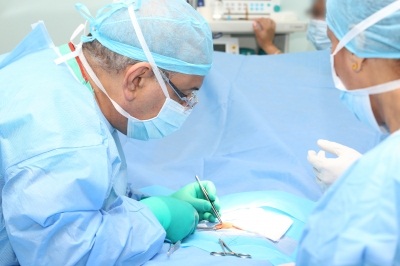An inguinal hernia is no fun – it’s a painful medical condition that needs to be treated as soon as possible. It often starts as a mild discomfort and swelling, but if left alone, it can quickly develop into a serious condition which results in intense pain. It’s most common in men – women tend to suffer more from a hernia in the femoral area.

In essence, a hernia is the protrusion of an organ or tissue through an abnormal opening in some tissue or lining in the body; it’s a tear. But what causes it? How do you detect it, and what do you do about it? Here’s everything you need to know about inguinal hernias: the causes, treatment, and more.
Hernia: the symptoms
The inguinal hernia is the most common type of hernia; symptoms include:
- Swelling around the groin
- Pain or discomfort
- Redness or a warm feeling
- An abnormal feeling in or around the groin area, especially when lifting (which could disappear when you lie down)
The treatment
More often than not a surgery will be recommended – the organs that stick through the broken, ripped, or damaged tissue need to be put back in place, and the torn tissue needs to be repaired and healed. It’s a relatively simple procedure that can be done in several ways, depending on the location and the seriousness of the ailment.
Preparing for the operation
Before the operation, you should have a test to see if you are fit for the medical procedure, and your general practitioner or your surgeon, such as the expert hernia surgery in Surrey surgeons from London Surgical Group, should explain the risks, the procedure, how to prepare, and how to take care of yourself after the operation. You will probably be asked not to eat or drink anything for a certain period before the procedure (usually starting the night before).
The operation
The operation itself is a very common one, and could be done in several ways – your specialist or surgeon should give you explanations regarding this. Generally speaking, it should last no longer than 90 minutes.
The recovery period
It could take days or weeks, depending on your age and constitution. Prepare in advance for recovery, as you may not be able to do your normal activities for a few days or a week. You might require some assistance for a short while.
Like every operation, the medical procedure should be taken very seriously, as there is always the potential of complications. However, there’s no need to worry; the medical community has plenty of experience and (barring complications) the patient can go home on the day of the surgery. With a little preparation, recovery is swift, and less than 1{e57abf90b25f0e28dca92805c8cf341aff0dcbac27f9aa5bc97ee118adb86dfa} ever develop a hernia again.
Image attributed to David Castillo Dominici/FreeDigitalPhotos.net
http://www.freedigitalphotos.net/images/doctor-making-a-suture-in-operation-room-photo-p287038
 Living With Healthy Hunger Health Blog
Living With Healthy Hunger Health Blog

